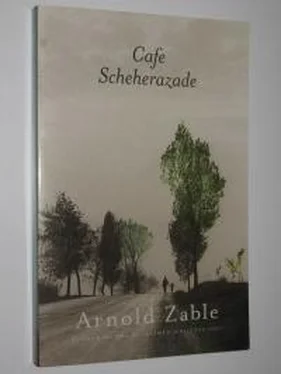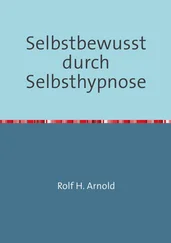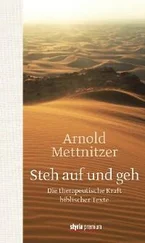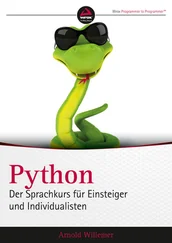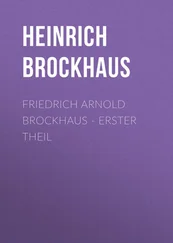Arnold Zable - Cafe Scheherazade
Здесь есть возможность читать онлайн «Arnold Zable - Cafe Scheherazade» весь текст электронной книги совершенно бесплатно (целиком полную версию без сокращений). В некоторых случаях можно слушать аудио, скачать через торрент в формате fb2 и присутствует краткое содержание. Город: Melbourne, Год выпуска: 2001, Издательство: Text Publishing Company, Жанр: Проза, на английском языке. Описание произведения, (предисловие) а так же отзывы посетителей доступны на портале библиотеки ЛибКат.
- Название:Cafe Scheherazade
- Автор:
- Издательство:Text Publishing Company
- Жанр:
- Год:2001
- Город:Melbourne
- ISBN:нет данных
- Рейтинг книги:4 / 5. Голосов: 1
-
Избранное:Добавить в избранное
- Отзывы:
-
Ваша оценка:
- 80
- 1
- 2
- 3
- 4
- 5
Cafe Scheherazade: краткое содержание, описание и аннотация
Предлагаем к чтению аннотацию, описание, краткое содержание или предисловие (зависит от того, что написал сам автор книги «Cafe Scheherazade»). Если вы не нашли необходимую информацию о книге — напишите в комментариях, мы постараемся отыскать её.
Cafe Scheherazade — читать онлайн бесплатно полную книгу (весь текст) целиком
Ниже представлен текст книги, разбитый по страницам. Система сохранения места последней прочитанной страницы, позволяет с удобством читать онлайн бесплатно книгу «Cafe Scheherazade», без необходимости каждый раз заново искать на чём Вы остановились. Поставьте закладку, и сможете в любой момент перейти на страницу, на которой закончили чтение.
Интервал:
Закладка:
They remind me of my luck. Look. Here is a photo of me with
Boris, wrapped in his winter coat. He treated me as a son. To have money is the greatest thing. With money you can help yourself. You can help others. And Boris helped me.
"And he helped in a nice way, with honour, without making me feel like a beggar. He gave me textiles and said, "Go and deal. Go and make a living." He did not give you charity. He gave you a chance. After I made money, I too was able to help others. My foolish child, this is how it is. This is the way the world spins and turns.
Yossel orders his customary chicken schnitzel. He eats with relish, as if each morsel could be his last.
"I did anything to survive." he says. "I smuggled goods, traded in diamonds, exchanged my hard-earned money on the black market.
I even purchased the complete works of Karl Marx and Adam Smith from a refugee, and made a ten-fold profit by selling them for their weight! Like everything in Shanghai, 147 paper was in demand. They had opposite views, Marx and Smith, but in weight they were worth the same!
"But unless my life depended upon it I never traded on Shabbes.
This is where I drew the line. On Friday nights I would. get dressed in my best clothes, and I would stroll to the Beth Aharon synagogue to pray. I stood at the polished pews, alongside the yeshiva boys, and rocked back and forth until I found myself in the prayer houses of old.
"After the service I would go to Goldbloom's restaurant. It was heimish. As homely as a mother's kitchen; and the food was koshen
Do you think it would be otherwise? We sang zmires, Shabbes songs. We drank kosher port, as if we were back on Krochmalma. We drank wine as if each Shabbes was a Passover feast.
"Yes, Shanghai was a tragedia. But we made a life. A Russian life. A French life. A Chinese life. Any life you wished. We danced to gramophones in private rooms. We went to all-night dances and ran after beautiful girls. We watched American films at the Lafayette. We saw Dorothy Lamour at the Broadway, as my beloved Warsaw fell. We watched Bette Davis at the Uptown cinema, while my dear parents perished in hell.
"Of course, the situation changed after December `41. Of course the party was over. But even then, in Hongkew, there were coffeehouses; they multiplied like flies. We had little food. We drank ersatz coffee. We ate soggy rice drowning in water. We ate red beans until we burst; but we could breathe! We sat for hours on end and shuffled cards. We played ping-pong and 148 dribbled footballs in rubbish-strewn lots. We sat with coolies and played mahjong. What else could we do but live for the day?
"In Hongkew lovers grappled in each other's arms in dark corners and lanes. I saw them with my own eyes. My foolish child! What can you know of such things? Even in a slum, the spirit thrives.
"And compared with those who stayed behind we were in paradise.
Ah, now that was a true tragedia. What happened to us was nothing in comparison. Gornisht. At least we had a tiny bit of room in which to move. At least we could have affairs, bear children, and bury our dead, the way they should be buried, with a tombstone to mark their names. At least we could drink coffee as the rest of the world burned. Perhaps that is why I loved it. Perhaps that is why I still dream of Shanghai. In Shanghai I survived!"
As I leave the cafe I feel disoriented. The footpath seems malleable under foot. Nothing feels certain. Yet everything appears vibrant, ablaze. The Europa cake shop glistens with sugar-coated dreams of a distant past: sacher rum and cherry kougelhupf. Vanilla knipfel and almond horseshoe. Baked cheesecake, Vienna rings, hazelnut meringues and honey sponge.
I catch a tram and find relief in the breeze that flows through its open doors. The Upper Esplanade is lined with luxury 149 apartments and dishevelled hotels. The sea is a scorching silver that scalds the eyes. A haze sinks from low-hung skies. A solitary ship crawls across the bay. The green-domed clocktower marks the passing of a summer day.
The tram curves into Fitzroy Street. Ageing elm trees line the way. Tables sprawl at kerbside cafes. Pimps and prostitutes survey their domain. Backpackers finger their copies of The World on Twenty Dollars a Day. It is shabby, yet somehow it seems new.
A world of sojourners and itinerants, unhinged and unearthed.
I too have become a walker, a cafe dweller. I too have become unhinged, so taken by Laizer, Zalman and Yossel's stories that all I see about me seems like a parade, a play of chance.
"We are luftmenschen." is how Yossel put it, with a laugh.
"People of air. We do not belong to any one place. The whole world is ours. Yet, despite all our running about, nothing is truly ours. My foolish child, this is how it is."
150
Walk the familiar route. The inner city is coated in dew. St
Kilda pier is lined with lamps that glow like miniature moons. A woman leans across the rails. A couple embrace on the deserted beach, a middle-aged man slumps back on a wooden seat. The Palais
Theatre rears like a Gothic castle in the mist.
Walk the streets of Shanghai; walk the lanes of Krochmalna; walk the crumbling courtyards of Vilna; the foothills of Kobe; walk the ancient trading route. Walk the pier. Walk the pavement. Walk the shoreline of the bay. Walk and come to know that others have walked here for millennia. Walk the contours, 151 the flatlands, the hills, the rivers and creeks coursing like arteries to the hay. Walk and come to know that this land abounds in tales, both ancient and new.
Retrace your steps along the familiar route. Observe the neon sign coming into view, Scheherazade blinking lilac, pink and blue. Proceed through the glass doors. Make your way past the front alcove where the boys are playing cards. Move past the men immersed in journals and racing guides. Sidestep the tables where families are gulping down their meals; and make your way to the back room.
They are there, as usual, Mr and Mrs Zeleznikow, Avram 152 and
Masha, the proprietors, in their directors' chairs, issuing orders, poring over bills, shuffling papers, reading the news.
So join us, dear reader. Don't be shy. Here, have a slice of
Black Forest cake. On the house. And a glass of red. Savour it.
Feel the glow spreading over your cheeks. Allow the taste to linger in the mouth. It is a pleasant feeling, no? Are you comfortable? Sit back. Settle into your chair; and listen to bobbe mayses, grandma tales:
Listen to this story children, Listen with nose and eyes.
Over grandma's house
A cow I saw did fly.
This is true, this is true, This is true, it all took place.
This is true, this is true, This indeed, I saw myself.
The war is over. Empires lie in ruins. A weariness has descended upon the world. Travellers trudge across the horizon clad in rags. They sleep in barns, abandoned cottages, burnt-out buildings. They emerge from temporary refuges, remote hamlets.
They disperse from disbanding armies and the labour camps of the east. It is time to seek out the loved ones they have left behind. It is time to journey home.
Masha's family were among the first to return to Poland. In
September 1945, the Frydmans boarded a train in Dzhambul. 153
Cold winds penetrated the wagons. The early snows were falling.
Tall grasses bent to a bitter breeze. Forests vanished into the shadows. Villages receded in huddles of light.
They travelled in silence. All about them they saw others on the move; on the backs of trucks, in bare feet, on bicycles and horse-drawn carts; they moved like weary battalions in quiet retreat. They travelled towards a land shrouded in rumours. They prayed that their loved ones had survived. They were afraid of what they would find.
Yet nothing could have prepared them for the devastation that had been wrought in their absence: the piles of rubble, twisted girders, the razed hamlets, the wastelands of defeat. Nothing could have readied them for the scorched earth, the ruined cities, the desecrated temples and shattered homes.
Читать дальшеИнтервал:
Закладка:
Похожие книги на «Cafe Scheherazade»
Представляем Вашему вниманию похожие книги на «Cafe Scheherazade» списком для выбора. Мы отобрали схожую по названию и смыслу литературу в надежде предоставить читателям больше вариантов отыскать новые, интересные, ещё непрочитанные произведения.
Обсуждение, отзывы о книге «Cafe Scheherazade» и просто собственные мнения читателей. Оставьте ваши комментарии, напишите, что Вы думаете о произведении, его смысле или главных героях. Укажите что конкретно понравилось, а что нет, и почему Вы так считаете.
